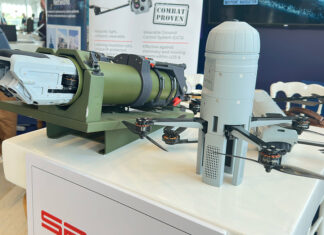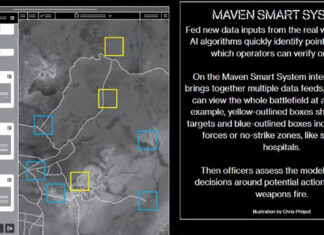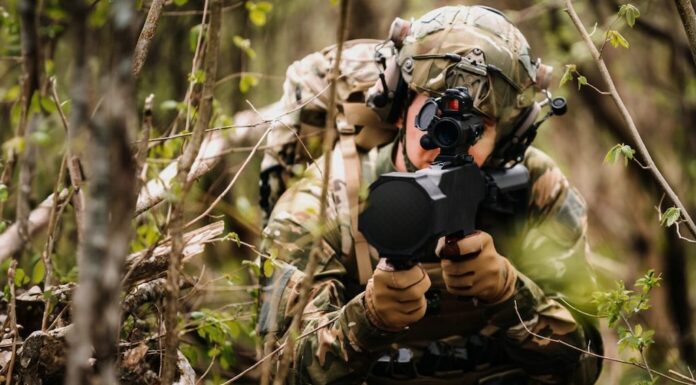A recently established Interagency Task Force has been activated at US Central Command to assist the command in its Irregular Warfare activity. The task force will track and target “violent and extreme actors” in the command’s area of operations. “Regionally, we look at influences of extreme actors that are malign that would provide, from within their borders, exporting either violence or activities that would be disruptive to their neighbors,” Air Force Brig. Gen. Robert H. Holmes, CentCom’s deputy director of operations.
Targeting Terror & Support Networks
General Holmes added that the objectives of the Interagency Task Force for Irregular Warfare for the near term include disrupting some specific elements of terror networks. “If you find bad stuff in the wrong places, you have to call it like you see it. We continue to see that and continue to watch it,” Holmes said. “Our business is looking at this malign influence and then figuring out what we can do to counter it … in a holistic manner, not necessarily just force on force.” He added that to counter, combat and, ultimately, defeat these kinds of networked activities, it will take more than just military force over the long term.
Non-Governmental Agencies to Assist the Military’s Irregular Warfare
Holmes said the Interagency Task Force for Irregular Warfare, which includes other federal partners and nongovernmental agencies, will be able to better pursue certain elements that the military is not authorize to pursue. “if there’s a maligned actors in the battlespace that are supporting [our enemy], killing coalition forces, killing civilians and disrupting our efforts, we’ve got to have a way to deal with those folks and get them out of the battlespace.” said General Holmes. He stressed that If these elements are not considered an enemy combatant, there must be a way to deal with them out of the battlespace. “We as a nation need them out of the battlespace.” he said. “There are certain things that the Justice Department can do, coupled with international policing through Interpol, that we can criminalize and get that bad actor out of the battlespace. So from my point of view, I really don’t care how we get them out of there. Holmes concluded.
Countering Adversarial Information Operations
Another aspect of the new task force’s responsibility is the monitoring and disruption of “adversarial information operations” – or communications tactics addressing feeding local and foreign journalists and triggering media reports with misleading information about civilian casualties. Holmes said that both the Taliban in Afghanistan and terrorists in Iraq have both adopted this type of tactic. “[There is a] discrepancy in what we see in open-source reporting with regard to civilian casualties and then what is actually in our operational reporting,” Holmes said. “I believe that the enemy uses this tactic to try to dissuade a civilian populace from the things that are actually going on there.” We’re looking at countering some of the line networks — and I can’t go much past that — but we’re — part of the task force is a very robust operational and intelligence fusion center, and it is directing a primary effort toward disrupting some specific elements of some terror networks.

The interagency task force also is looking into the networks of the Taliban and al-Qaida. Holmes said both terrorist organizations have specialists who are savvy in manipulating the media. “There is a malign actor there that, in my mind, would have the purpose in an information operation campaign, and that is clearly a piece of terrain for our adversary, that they are going to use this to their advantage,” Holmes said. And that advantage can be significant in the court of world opinion, the general noted, because organizations with nefarious intentions will put out whatever information suits their motives. Once information is put into the dynamic information environment, misleading perceptions are easily created. “Often, truth is no longer important; it’s just out there,” he explained. “If I was my opponent, and I wanted to do something against someone I knew was grounded in truthful principles, … then I would use that to my advantage.” “We’re bound to tell the truth, and in most cases our adversary is not,” Holmes noted.
Another trend the interagency task force is watching and trying to weigh out is the use of female suicide bombers. Though it’s not a significant trend at this point, young or mentally disabled women being used as suicide bombers is a departure in enemy tactics. “It’s too early to say that this may be a sign of desperation,” Holmes said. “We watched the recruitment and flow of young males that have been recruited to be suicide bombers. We have been trying to target that network to disrupt that flow.”



















